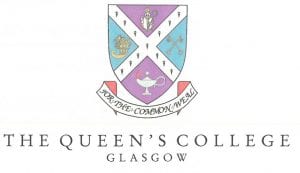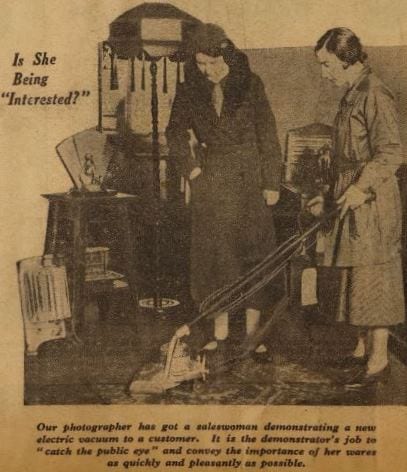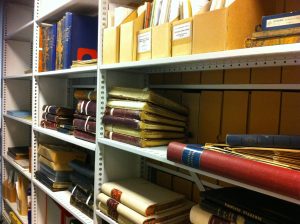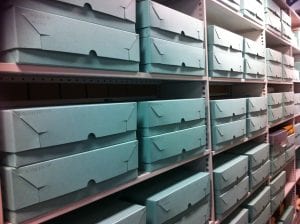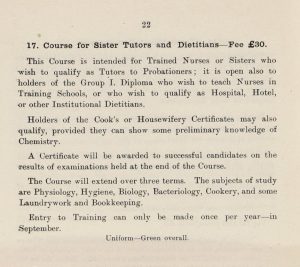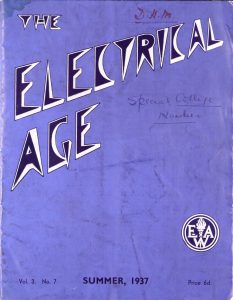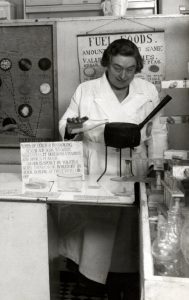To meet someone gifting to the Archive Centre is (at least for this writer) in parts agreeable, humbling, and slightly nerve-inducing – exacerbated manifold if the materials are of personal or sentimental value.
The neatly folded and dry-cleaned blazer which Doreen Blanche brought to the reading room had belonged to her late mother and was the first of its kind received to Glasgow Caledonian University Archive Centre. Pale blue with purple stripes, it was worn by students of the Glasgow and West of Scotland College of Domestic Science – colloquially and affectionately referred to as the ‘Dough School’. Later renamed The Queen’s College, Glasgow, it is a founding institution of GCU.
